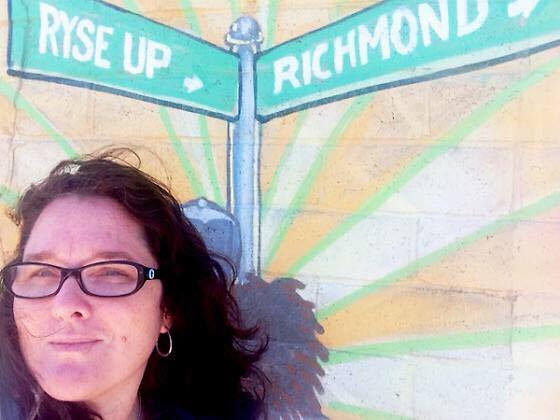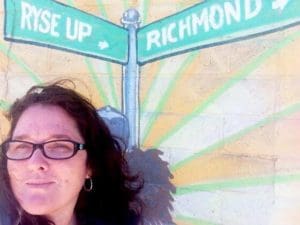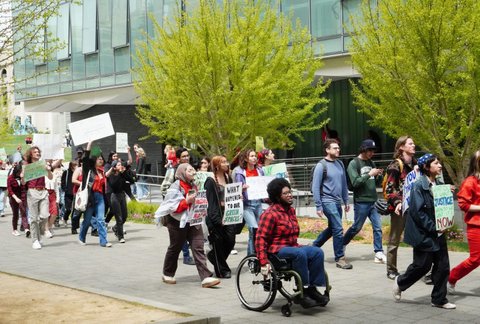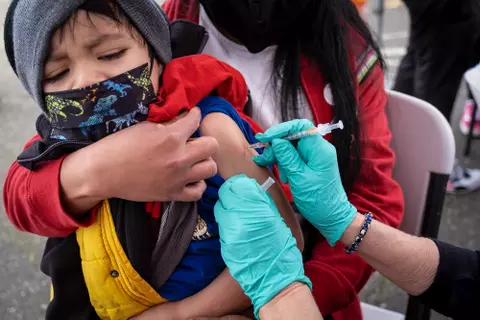
23 Aug ‘Kids First’ – A Challenge to Business as Usual

Op-Ed • Kimberly Aceves, Executive Director for RYSE Center
Richmond Kids First. It’s not just a catchy name; it reflects our values in putting some of our most marginalized community members at the center of our work. It reflects our belief that one of the most powerful and valuable assets the Richmond community, like all communities, possesses is its young people. In every sense of the word, they represent possibility. In every sense of the word, they reflect our future. How we invest in their holistic well-being is an indicator of not just how we value them as individuals but, more importantly, how we commit to building a community in which the next generations are able to thrive and meaningfully contribute.
Ultimately, we also know that in order to shift the impacts of historical inequities on young people of color, the investments have to be bold. The investments have to be visionary. Most importantly, the investments may need to challenge business as usual, because business as usual is not keeping our kids from dying alone on sidewalks.
Over the course of the past few months, the Richmond Kids First initiative has received numerous criticisms. We’ve been at the receiving end of scathing editorials, e-forums and social media discussions. And while these attacks have often felt misguided, inaccurate and, honestly, hurtful (please see our website for the facts: www.richmondkidsfirst.com), one thing we have rejoiced in is the fact that suddenly the debate about prioritizing young people has taken center stage. Suddenly, the needs of young people and how this city prioritizes them can no longer be ignored or delayed.
Truth is, at the end of the day, when adults are arguing for their piece of the budget, no one is really arguing to ensure that young people are getting what they need to survive, let alone thrive. This needs to be challenged and it needs to be changed. We need to be honest about our commitment to prevention and effective intervention over clean-up and enforcement. We also need to insist that the City has a coordinated and thoughtful set of long-term outcomes and indicators for children, youth and young adults – 35 percent of Richmond’s population. Outcomes, policies, programs and services based on the real needs of the young people that live in this community and deal with the daily impacts of poverty, racism and persistent trauma.
We can continue to publically argue the merits of our initiative; we welcome respectful dialogue and debate. We can continue to lift up the challenges with it, but at the end of the day we should be asking ourselves as a community, what kind of legacy do we want to build? What kind of ancestors do we want to be? And if not this initiative, then what? To date, what have any current elected leaders offered as an alternative? What has been lifted up as a radical change to the current conditions, supports and services our children, youth and their families are receiving?
It’s always easy to attack solutions. I argue it’s harder to identify new solutions that will fundamentally shift the long-term health, wellness, social and economic outcomes for our children and youth.
In conversations over the past decade, some of what we have asked for from the City have included, but are not limited to, the following: A transparent budgeting process so that we can see how much is going to serve those between the ages of 0-24; an inventory of current services and supports and an assessment of gaps; a commitment from the City to identify a clear vision, outcomes, and set of strategies that best meet the needs of all young people in Richmond; a transparent process for allocating and evaluating resources that the City does receive and distribute on behalf of children and youth including clear data around race, ethnicity, gender, sexuality, immigration status, age, and neighborhood distribution. We have asked for study sessions, we have asked for this to be part of tax initiatives, we have tried to get detailed budget information and we have, for the large part, been ignored or given empty promises for the future.
And for those who say that we aren’t willing to come to the table, this just isn’t true. We’ve come to the table and realized that until now there wasn’t really an authentic seat. Despite this, we remain committed to partnering with anyone also committed to creating a children, youth and family friendly City. We remain committed to sitting at tables of unusual allies and engaging in healthy struggle. We remain committed to creating a Richmond that our young people feel included in and want to stay in to raise their children. We know that there is no other choice.






No Comments